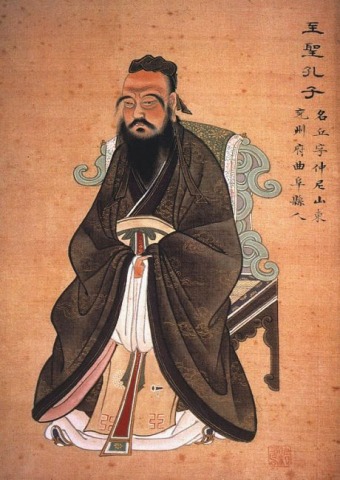
After speaking of the duties between sovereign and minister, father and son, husband and wife, elder brother and younger, and friend and friend, Confucius writes gracefully, “Some are born with the knowledge of those duties; some know them by study; and some acquire the knowledge after a painful feeling of their ignorance.”
By those who come to know these duties “after a painful feeling of their ignorance,” I would like to think he means those who experience repentance and change of heart. Even such a slight and passing allusion to such things is rare outside of revelation. One is refreshed, as by a breeze from heaven.
On the other hand, the sage goes on to say, “Some practice them with a natural ease; some from a desire for their advantages; and some by strenuous effort. But the achievement being made, it comes to the same thing.” These words contain not even a trace of awareness of divine grace – especially of the transformative importance of the motive divine of charity. To pursue virtue from a desire for its advantages seems to miss the point.
Source: Confucius, The Doctrine of the Mean